सभी
← Back to Squawk list
Boeing hit by 25 percent tariff in U.S.-China trade war
Boeing, the biggest U.S. exporter, suffered a setback in China after the country proposed an additional 25 percent tariff on U.S. aircraft in a retaliatory move, giving rival Airbus a leg-up in a market set to the become the world's biggest. (www.chicagotribune.com) और अधिक...Sort type: [Top] [Newest]
The tariff is like handing business to Airbus on a golden platter. Airbus has an assembly facility in China for the A320 series. So.......
This merely allows Airbus to adjust their prices upwards for they will maximize their profits. This will not be any bargain for China in the long run.
Hardly. Have you not ever heard of the Walmart Effect?
All Airbus has to do for China is to sell more jets to them at their normal prices. They already have a plant/assembly there with their own lines of distribution going there, so all they really need to do is keep selling them as they are and make up the difference in the volume sold. Also, you're assuming that China will want to buy from Boeing. If they have Airbus in the backyard, COMAC being homegrown, plus Bombardier and Embraer unaffected by the US Steel tariff, they don't need Boeing at all.
Additionally, the tariff would apply for any future purchases, not those already transacted.
All Airbus has to do for China is to sell more jets to them at their normal prices. They already have a plant/assembly there with their own lines of distribution going there, so all they really need to do is keep selling them as they are and make up the difference in the volume sold. Also, you're assuming that China will want to buy from Boeing. If they have Airbus in the backyard, COMAC being homegrown, plus Bombardier and Embraer unaffected by the US Steel tariff, they don't need Boeing at all.
Additionally, the tariff would apply for any future purchases, not those already transacted.
The market certainly is not impressed....Boeing shares up 4% today while Airbus is only up 0.25%.
The same thing happened here that happened to shares of Kmart and Sears, Roebuck, and Company back in the 1960s and 1970s. Look at where they are now, with Kmart gone and Walmart outperforming Sears in nearly every way.
The point here is that you don't need to raise prices to maximize profits due to a tariff being imposed. That is trying to play the same game as the company affected by the tariff. If a product costs $20 to make, and because of the levels of distribution in a distribution chain (wholesaler, regional distributor, local distributor, local shipment carrier) that product costs $100 at the store (each level needs its own markup to cover their cost of work), and someone using the Walmart model uses their own warehouses and trucks to get that same product to a store, sells it for $3 cheaper and makes up the cost in volume sold, you think you're getting the better deal while the producer takes home the profit.
Wash/rinse/repeat here. Airbus can keep going with business as usual, sell products to China at their normal price, make of the difference in cost by selling more than Boeing being able to sell *ONE* aircraft. That doesn't make Airbus cheaper, that makes the Boeing aircraft cost more. If all were equal, would you pay $1.25 million for a Boeing product versus $1 million for an Airbus product, again, with all being equal? They wouldn't even out costwise until you hit $5 million, which by then Airbus would have sold 5 aircraft to Boeing's 4.
Again, concepts of distribution and how Airbus can make up the difference in volume sold.
The point here is that you don't need to raise prices to maximize profits due to a tariff being imposed. That is trying to play the same game as the company affected by the tariff. If a product costs $20 to make, and because of the levels of distribution in a distribution chain (wholesaler, regional distributor, local distributor, local shipment carrier) that product costs $100 at the store (each level needs its own markup to cover their cost of work), and someone using the Walmart model uses their own warehouses and trucks to get that same product to a store, sells it for $3 cheaper and makes up the cost in volume sold, you think you're getting the better deal while the producer takes home the profit.
Wash/rinse/repeat here. Airbus can keep going with business as usual, sell products to China at their normal price, make of the difference in cost by selling more than Boeing being able to sell *ONE* aircraft. That doesn't make Airbus cheaper, that makes the Boeing aircraft cost more. If all were equal, would you pay $1.25 million for a Boeing product versus $1 million for an Airbus product, again, with all being equal? They wouldn't even out costwise until you hit $5 million, which by then Airbus would have sold 5 aircraft to Boeing's 4.
Again, concepts of distribution and how Airbus can make up the difference in volume sold.
Sears and Kmart (one and the same) are where they are today at least partly because of their business plan but realistically when Eddie Lambert took control by buying enough stock to control it is when they tanked totally. He only wanted them to be a cash cow for his investing habit.
I also heard they proposed 25% tariff on US pork. Funny since a Chinese company bought and now owns Smithfield, the largest pork producer in the world.
